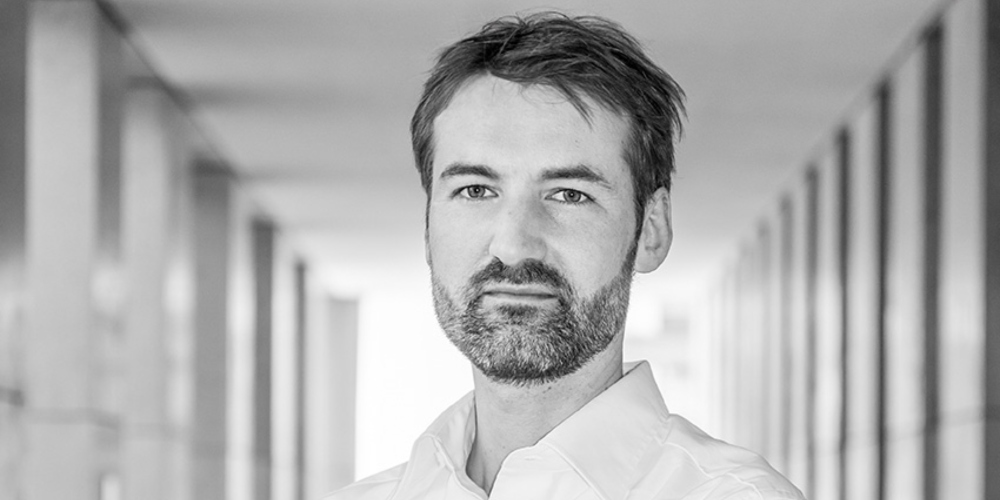Dr. Ingo Schneider is a lawyer, angel investor, and author who has spent over a decade guiding startups through the legal and strategic challenges of building high-growth companies.
In this interview, he shares insights from his new book “Company Building – a Practical Guide for Corporate Structures and the Process of Equity Funding for Growth Companies”, offers practical advice for founders, and reflects on the current state of Berlin’s startup ecosystem. Read on!

- Hi Ingo, thank you for agreeing to do the interview. Could you tell us a bit about your background and how you got connected to the startup world?
I have a legal background – I studied law in Barcelona and Berlin and got my PhD there as well. In my first years as a lawyer, I worked mostly in M&A. But very quickly, I was into the first venture deals, mostly to counsel big international VC firms.
Today, my firm focuses on the company side and angel investors. We work very closely with startups and their founders, typically from the very beginning of establishing a company. We have close relationships with universities, research institutions, and accelerators. We help in sinning-of teams to set up their ventures and work on the legal side to support the growth of the companies.
We work on financing rounds, and their preparation from the term sheet to the investment and shareholders’ agreements. However, we also focus on the ongoing assistance with legal guidance on employee participation, labour law, protection of trade marks, and other IP assets.
- Congratulations on your recently published book, “Company Building – a Practical Guide for Corporate Structures and the Process of Equity Funding for Growth Companies” Tell us more about it. Why did you decide to write it? Who is it intended for?
Thank you! This book was born out of a very real need I observed in my day-to-day work as a lawyer advising founders and early-stage companies. Over the past 15 years, I’ve worked closely with many entrepreneurs navigating the complex world of corporate structuring, funding rounds, shareholder agreements, and everything in between. Again and again, I saw how challenging and opaque the legal and strategic decisions around building a company could be, especially when founders are focused on building great products and businesses.
So, I wrote this book to bring clarity and practical guidance to the table. I aimed to distill the key legal and operational insights every founder needs when starting and scaling a company, especially one that is planning to raise capital from business angels and VCs. The book gives answers, highlights facts that some founders are not aware of, and shows best practices to enable founders to move faster.
The book provides a step-by-step overview of the legal framework around company formation, structuring, and funding, while also offering practical input from a founder’s perspective. It’s not a dry legal textbook, but rather a hands-on guide that reflects the real-world questions and decisions that founders face in the early stages of their journey.
In particular, I focus on the process of equity funding because it’s one of the most pivotal and often misunderstood aspects of growing a company. From pre-seed rounds to Series A and beyond, founders face many critical legal and strategic decisions: What kind of entity should we form? How do we structure our cap table? What should be included in a term sheet? How can we protect founders’ interests while building a structure that’s attractive to investors? How do we onboard first angel investors, and how to avoid broken cap tables?
These are not just legal questions — they are strategic and impact the DNA of a company. That’s why this book blends legal advice with practical, founder-focused commentary. I also included lists and examples where appropriate, to give readers tools they can actually use.
The book is intended primarily for founders — both first-time and experienced – but I believe it’s equally valuable for startup team members, angel investors, and even lawyers who are new to working with growth companies. It’s for anyone who wants to better understand the foundations of company building, from a legal and strategic point of view.
Ultimately, my goal was to empower founders to make better decisions faster. When you’re building a company, time and clarity are two of your most valuable assets. With this book, I hope to remove some of the friction that comes from uncertainty and help more great ideas turn into successful, sustainable companies.
- Besides being a Corporate Lawyer at Icadia Legal, a law firm for tech companies, you’re also an angel investor. Could you tell us about your mission?
As both a venture lawyer and angel investor, my mission is to empower founders with the legal clarity and strategic support they need to build strong, scalable companies.
At Icadia Legal, we work closely with tech entrepreneurs from the earliest stages, helping them make smart, forward-looking decisions. As an angel investor, I back ambitious teams with bold ideas — and bring not just capital, but experience and guidance to the table. My goal is to help bridge the gap between legal complexity and entrepreneurial momentum, so founders can focus on what they do best: building innovative, impactful businesses.
- You’re also a mentor at the Technical University (TU) in Berlin. Could you share the top 3 lessons for founders you would like to share with our readers?
Lesson One: Build a Solid Foundation
Get your company structure, cap table, and shareholder agreements right from the start. The most important point when starting a company – understand and implement founder vesting. This is crucial. It means founders earn their shares over time, which protects the company if someone leaves early. It’s a sign of commitment and fairness, and investors expect it. Without vesting, one departing founder could walk away with a significant stake, which can paralyze future fundraising and demotivate the remaining team. Founder vesting creates alignment and long-term trust.
Lesson Two: Communicate Transparently with Co-Founders and InvestorsMost startup issues are people issues. Transparent communication builds trust — the foundation of any successful startup. Misaligned expectations between co-founders or unclear updates to investors often lead to tension, delays, or even failure. Address issues early, document decisions, and keep all stakeholders informed. Clear, honest dialogue prevents misunderstandings and helps teams navigate inevitable challenges together.
Lesson Three: Don’t Accept a Bad Deal from an Investor
Founders often feel pressure to take the first money offered or offers from mentors at research institutions. But accepting unfavorable terms or partnering with an (angel) investor who doesn’t share your vision can have serious long-term consequences. A bad deal can distort your cap table, restrict your strategic flexibility, and lead to misalignment that drains your energy.
Fundraising is not just about capital; it’s about building long-term relationships. The right investor adds value, challenges you constructively, and supports your growth. Do your due diligence on the investor – in which teams and companies has the investor already invested? Ask for contact details to speak to the teams that the investor has already invested in. If the investor does not want to share, this is a huge red flag.
- What’s going well in the startup ecosystem in Berlin at the moment? Which challenges is the ecosystem facing? What are your predictions for the near future?
Berlin’s startup ecosystem remains vibrant — there’s a strong talent pool, in particular with Berlin’s top universities, growing investor interest, and a culture that embraces innovation and diversity. We’re seeing exciting momentum in AI, climate tech, and deep tech, with many early-stage founders building globally competitive companies.
However, challenges persist: access to growth capital is tightening, regulatory uncertainty can slow innovation, and attracting international talent remains a hurdle. Still, Berlin’s resilience stands out. I believe we’ll see more founders focusing on capital efficiency, sustainable growth, and building real value. The next wave of success will come from disciplined execution, strong teams, and solutions to genuinely global problems.
Thank you very much for sharing your story and insights, Ingo. We wish you the best of luck in your future endeavors.
Join our network of startups & investors!

